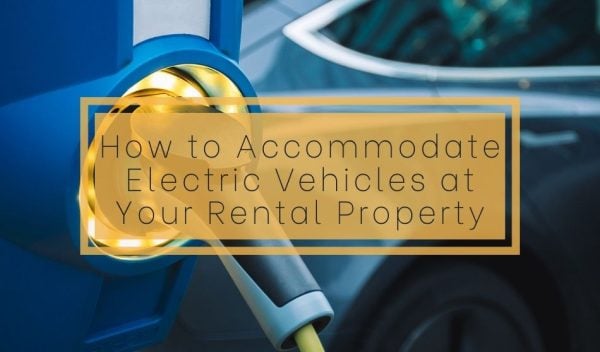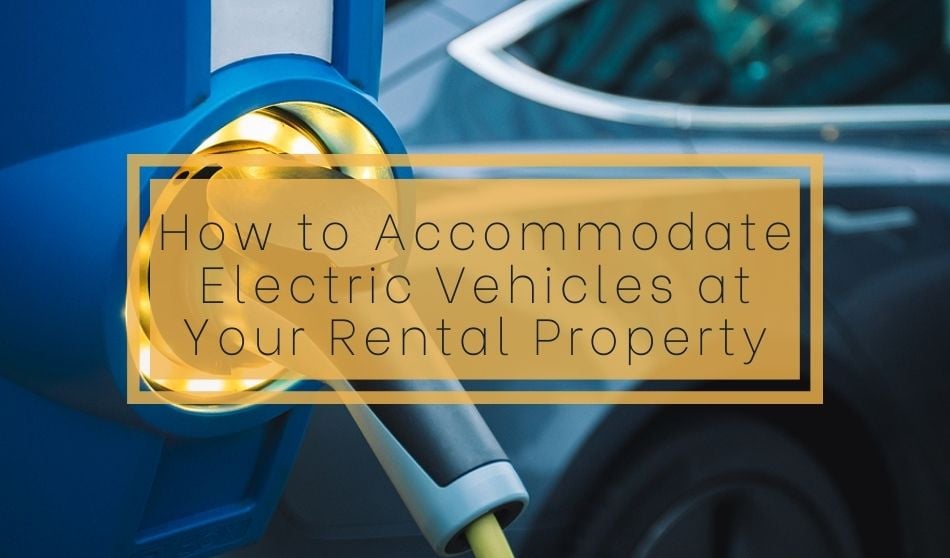
The rising popularity of electric vehicles (EVs) has led to a question – how can landlords accommodate tenants that have them? Charging ports are perhaps the most obvious part of this equation and for good reason. Installing charging stations for electric vehicles is a decision that should be carefully considered by landlords. While it is quickly being considered an amenity, landlords should carefully consider how necessary it is for their area. In cities, the need for charging stations is much greater than in rural areas.
What to Know About EV Charging
Similar to how there are different types of gasoline, there are different levels of electric vehicle charging. Each one has a different set of requirements and gives a certain amount of miles per charge. In order to determine which are going to be the most practical for your property units, you need to learn what the details of each are.
- Level 1 charging: This is the most basic level of charging that the owner of an EV can use. It just uses an extension cord run from a normal outlet. The most important detail about this is who pays for the extra electricity used. Having a provision in the lease that states explicitly who is responsible for electric car charging might not be a bad idea.
- Level 2 charging: Level 2 charging gets the owner of the EV more mileage per charge and requires 240V of electricity. This charging option would require you to install a specific charging outlet. Because of how it needs to be installed, this charging option would be a good fit for units that have a garage in which an EV owner can park and charge their car. The cost of installation can run anywhere from $300 to $1,000 in a single-family home and can be more involved for multifamily units depending on your needs.
- Level 3 charging: The most powerful level of charging, level 3 chargers are typically over 800V and rapidly charge electric vehicles. While they are harder to install and more expensive than the lower two levels, they can be advertised as an amenity. These would be beneficial in a parking lot, where all tenants with electric vehicles could access and charge.
The Cost of Adding EV Charging to Your Rental Property
The biggest cost that comes with installing these chargers is the cost of electricity. If your tenants pay for their own electricity then that cost would fall on them. However, if you pay for the electricity, then it is your responsibility. For the first two levels, since they are directly connected with the tenant’s unit, you have the option to charge them directly for the cost of the charging station.
With the larger, level 3 chargers, you can charge tenants for using them. By doing this, your revenue can increase and you can make back the cost of installation. If you still want to increase revenue, you could also allow non-tenants to use it and charge them. It can be advertised as a service and you can generate revenue from both tenants with an electric vehicle and people who might be visiting and who need charging services.
Benefits of Accommodating Electric Vehicles at your Rental
Other than being helpful for your tenants who own EVs, there are a variety of reasons to install electric car chargers at your rental property.
- Landlords that have multi-family properties or apartment complexes should prepare for electric vehicles to become the future of transportation. By installing EV chargers, you can future-proof your property and get ahead of the curve. Even if they aren’t tremendously popular at the moment, in the next few years they will most likely be high in demand.
- Installing electric car charging stations on your property will boost its value and make it more attractive to potential buyers if you ever decide to sell. It also gives you a great advertising point and can help attract new tenants.
- An increasingly big issue among tenants has become sustainability. It is now among the top priorities when looking for a new home to rent. Standing out from the competition now means prioritizing eco-friendly amenities. The installation of EV chargers is an excellent way to achieve sustainability goals and make your property more attractive to current and future residents. Your property can become a place that aligns with potential tenants’ sustainability wants.






The article implies that only “Level 3” stations can collect revenue, which is false. There are many L2 systems designed specifically for multi-family applications with revenue collection. Plus, a DC unit is the wrong application for the setting. Apartments and condos have the benefit of long dwell times, so L2 is really the only appropriate choice (barring unusual circumstances). I’ve worked with hundreds of MDUs over the last decade and never once recommended a DC unit and it is extremely difficult to recover the cost of a DC installation outside of California today. The article also understates the cost of L2 installation substantially and sets up false expectations. It can be as cheap as $1,000 but also can be 10-20x that figure.
Hi Jim! As many landlords are unfamiliar with EV options, we appreciate you taking time to share more context and insights from your expertise to this article overview.
As an EV owner, Jim’s comments are right on.
Thanks for weighing in!